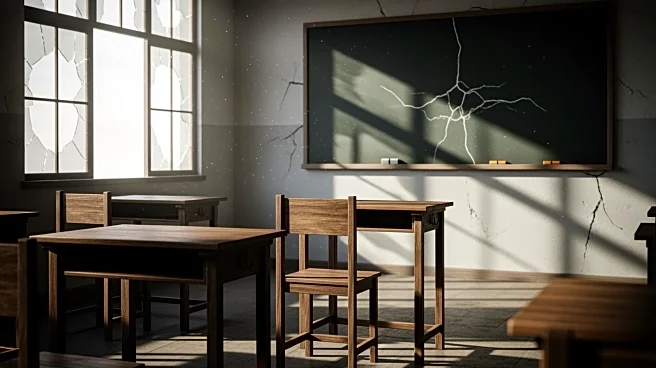What's Happening?
In Gaza, over 600,000 Palestinian children have been unable to attend school for the past two years due to the ongoing conflict between Israel and Hamas. The destruction of educational facilities has left
many children without access to basic education, as schools have been repurposed as shelters for displaced families. UNICEF and UNRWA are working to establish makeshift schools, but face challenges such as lack of space and difficulty in obtaining supplies. The psychological impact on children is severe, with many experiencing trauma from the conflict.
Why It's Important?
The inability to access education has significant implications for the future of Gaza's children. Without schooling, these children risk falling behind academically and socially, which could lead to long-term consequences such as increased vulnerability to exploitation and recruitment into armed groups. The situation highlights the urgent need for international support to rebuild educational infrastructure and provide psychological aid to affected children. The broader impact on Palestinian society could be profound, affecting future generations and the region's stability.
What's Next?
Efforts to reopen schools are ongoing, with UNICEF and UNRWA focusing on creating temporary educational spaces and securing necessary supplies. The reconstruction of Gaza's educational infrastructure is expected to be a lengthy and costly process, potentially taking years and requiring substantial international aid. The success of these efforts will depend on continued ceasefire stability and cooperation from Israeli authorities to allow the flow of educational materials into Gaza.
Beyond the Headlines
The destruction of schools in Gaza not only affects education but also serves as a stark reminder of the humanitarian crisis in the region. The psychological trauma experienced by children could have lasting effects, influencing their ability to contribute positively to society in the future. The international community faces ethical challenges in addressing the needs of these children while navigating the complex political landscape.











